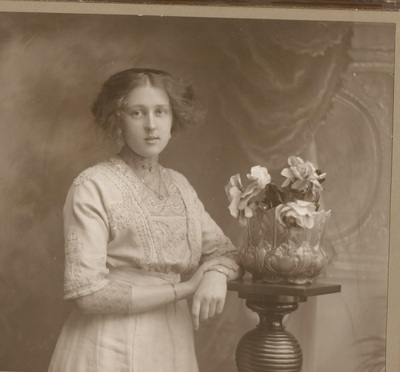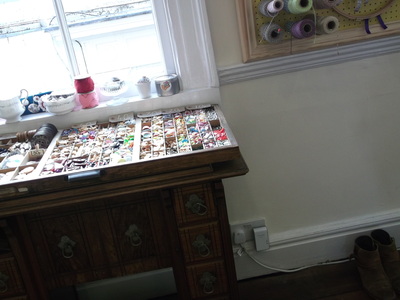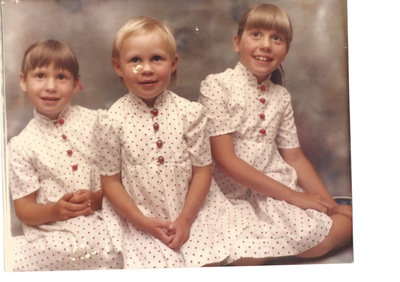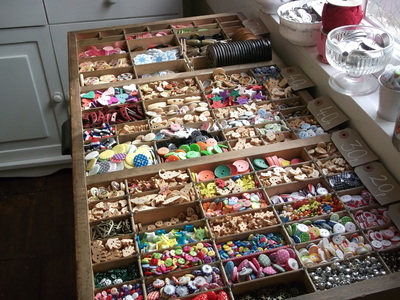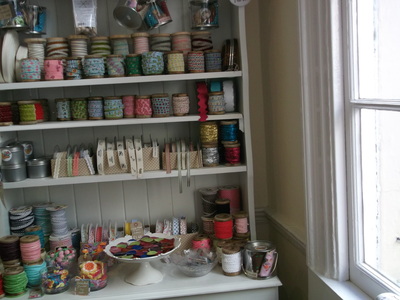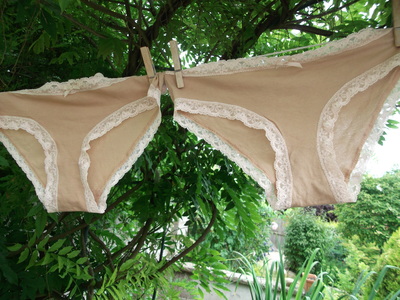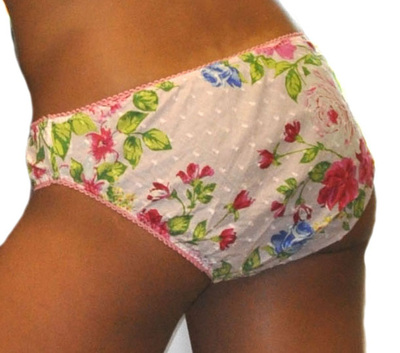Grandma's Sewing Machine
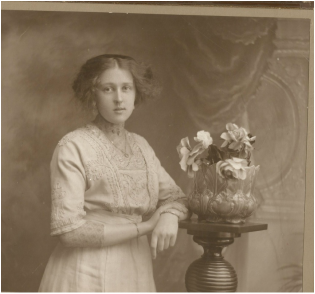 Maude in a beautiful dress she had made
Maude in a beautiful dress she had made
My Grandma lived in Devon, and I have many happy memories of time spent at her home during school holidays. While the adults chatted in the 'front room', I was left to my own devices. I had a wonderful time playing shops with my Grandma's haberdashery, which she kept in the little drawers of her beloved treadle Singer sewing machine.
Though a milliner by trade, Grandma could turn her hand to sewing anything. Our holidays with her were often made up of shopping in Exeter to find suitable dress fabrics for my mother, twin sisters and myself. Armed with fabrics of all textures and colours, matching threads and zips, we'd arrive back at her house and turn the dining room into a sewing room.
I loved coming down in the morning to see half-made up dresses hanging from the picture rails. It seemed to take her no time at all to make up a complete wardrobe of new clothes for us to bring back home to Bath.
I acquired sewing skills at school, but didn't enjoy lessons much. However, I loved watching Grandma cutting and adjusting patterns and learnt a lot that way. When my three daughters were children, I made matching dresses for them and was pleased to utilise the skills from my earlier years. I found that once I had a pattern I liked, I could continue making the same styles with different fabrics and embellishments. It became an economical way to provide new clothing for the children. As the girls grew into teenagers, they were less keen on wearing home-made clothes. As a result, my sewing skills became redundant apart from the occasional pair of curtains or mending.
I run a charity supporting marginalised women in Kerala, southern India. The charity imports sustainable banana fibre baskets and has been successful for almost 20 years. However, the baskets are becoming too costly as well as taking up a lot of space in my home. Several years ago I began to think about other items that I could sell to continue to support these very skilled women.
Sitting in the dentist's waiting room one day, I found an advert in a magazine to attend a knicker making workshop at The Makery in Bath. It suddenly occurred to me that knickers would be the perfect product for the women to make. Knickers would always be in demand, as well as light to import and require minimal storage space. I hadn't used an electric sewing machine since school, having only been familiar with Grandma's Singer treadle sewing machine, so decided to attend the basic course.
Getting to grips with their electric sewing machine, I found myself running hopelessly behind the rest of the group. I persevered and managed to create a reasonable pair of knickers, complete with bow. I enjoyed the session with its nostalgic atmosphere, bringing back happy memories of drawers and toffee tins brimming with threads, ribbons, buttons, unpicked zips, poppers and hooks & eyes.
I returned to do the advanced knicker making course and haven't looked back! My love of sewing has been revived, and I've introduced the ladies in India to the delights of knicker making. They make lovely fair trade knickers which are sold in the UK. All profit goes back to support various community projects in Kerala.
To finish off this story, due to a lack of space, Grandma's treadle sewing machine needed a new home. I contacted The Makery who were delighted to display it in their shop. I was pleased that it was somewhere where the provenance would be appreciated. It's been named 'Maude', after my Grandma. In my childhood, I never imagined that Grandma's sewing machine in Devon would end up in Bath in the shop where I learned to make knickers, which are now being replicated in India!
Christine Snow

